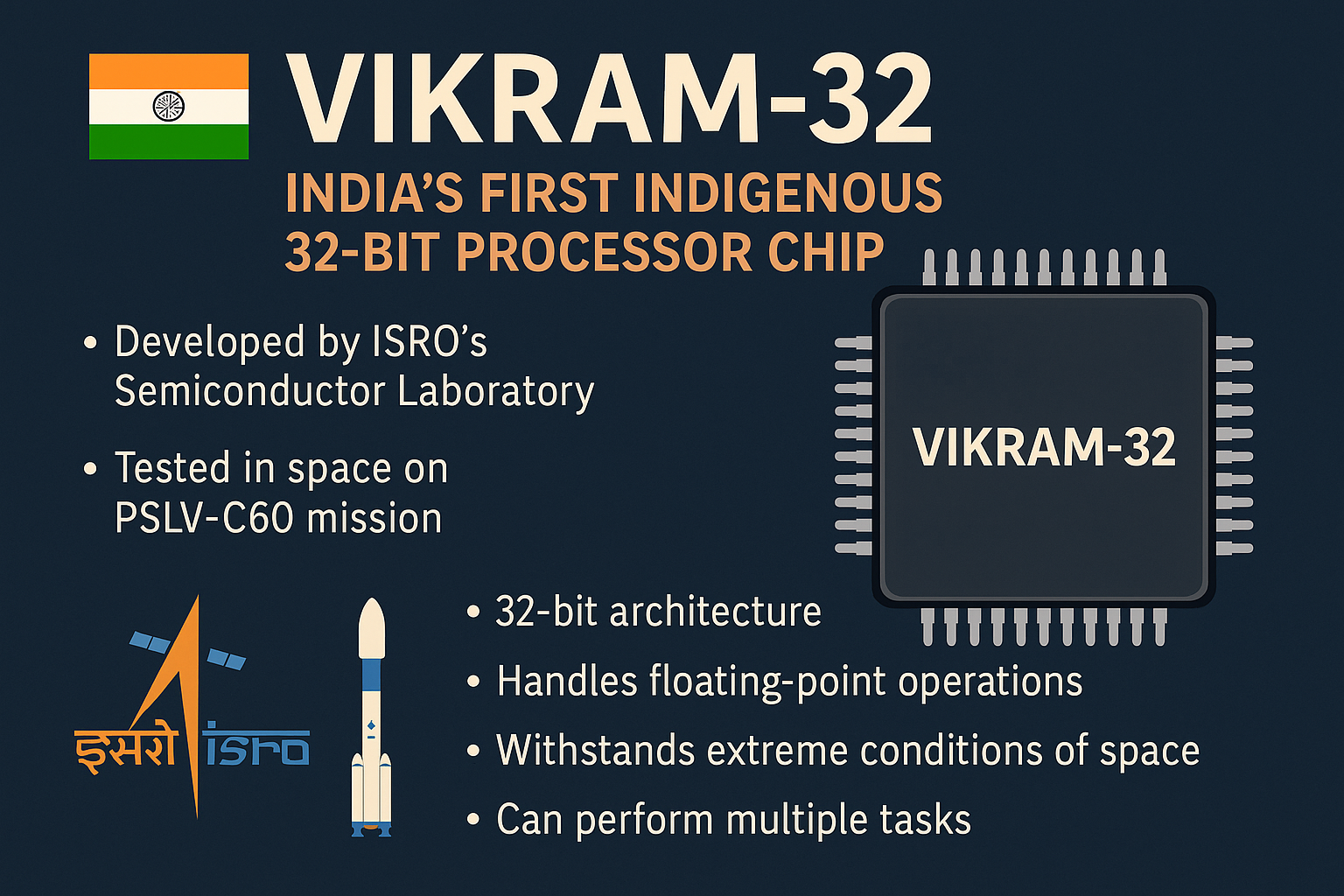At Semicon India 2025, Prime Minister Narendra Modi was presented with Vikram-32, India’s first fully indigenously developed 32-bit processor chip. It was developed by the Semiconductor Laboratory (SCL) of ISRO in Mohali, Punjab. This marks a huge step towards India’s dream of semiconductor self-reliance.
Key Highlights
First of its kind: India’s first indigenous 32-bit processor.
Built for Space: Specifically designed to survive the harsh conditions of space missions.
Tested in Space: The first batch, called Vikram 3201, was successfully tested on the PSLV-C60 mission.
Made in India: Fabricated and packaged at SCL’s 180nm CMOS facility in Mohali.
Journey: Introduced in March 2025; presented at Semicon India in September 2025.
Why is it Important?
Shows India’s shift from just consuming chips to creating advanced chips.
Supports India’s Semiconductor Mission (2021) goal of becoming self-reliant in chip-making.
Critical for space exploration, satellites, and launch vehicles.
Technical Features (Simplified)
32-bit Design: Can process data in chunks of 32 bits, making it powerful and efficient.
Handles Complex Numbers: Works with numbers that have decimals (like 3.14), useful for space calculations.
Space-Grade Durability: Built to withstand extreme heat, cold, and radiation in space.
Multi-Tasking Capability: Can perform many operations at once, suitable for rocket guidance and control systems.
FAQs
Q1. What is Vikram-32?
It is India’s first fully indigenous 32-bit microprocessor chip, designed for space missions.
Q2. Who developed it?
The Semiconductor Laboratory (SCL) of ISRO, Mohali.
Q3. Where was it tested?
On the PSLV-C60 mission, where it was validated successfully in space.
Q4. Why is it special?
Because it is completely designed and made in India, proving India’s progress in chip technology.
Q5. What makes it suitable for space?
It can withstand extreme temperatures, radiation, and vibrations in space.
Q6. Where is it made?
At SCL’s 180nm CMOS facility in Mohali, Punjab.
Q7. How does this help India?
It reduces dependence on foreign chips and boosts India’s Atmanirbhar Bharat (self-reliance) in advanced technology.







